WorkshopⅠ Progress in peace talks and denuclearization of the Korean Peninsula – the future of Northeast Asia without nuclear weapons
Developments in the Korean Peninsula have attracted lots of global attention following recent summit talks between South Korea and North Korea and between the U.S. and North Korea. We will discuss various issues and challenges involving complete denuclearization of the Korean Peninsula, as well as peace and security in Northeast Asia, including Japan, in general.
Coordinators
 |
Special Advisor: Hiromichi Umebayash Japan, Special Advisor, Peace Depot and Visiting Professor, Research Center for Nuclear Weapons Abolition Nagasaki University (RECNA) |
 |
Prof. Satoshi Hirose Nagasaki University (RECNA) |
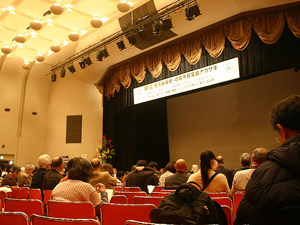 |
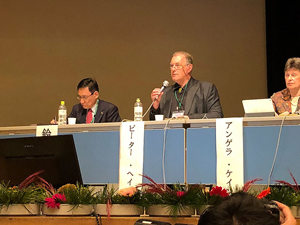 |
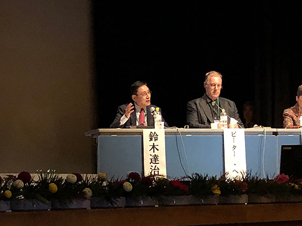 |
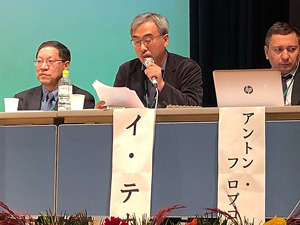 |
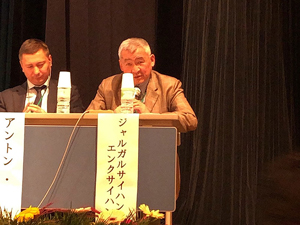 |
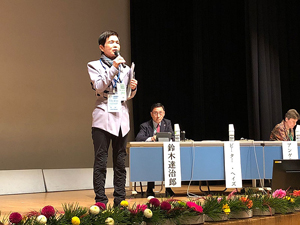 |
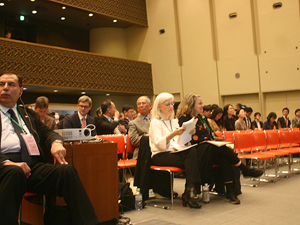 |
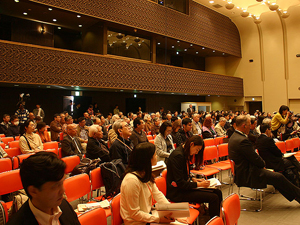 |
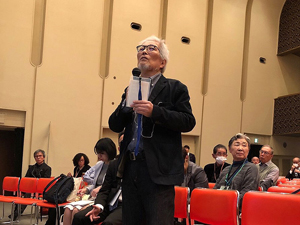 |
In the first session, we discussed the current status of the nuclear programs in the Korean Peninsula which
are in fluidity including the prospects and the future desirable postures. We listened to the presentation
by seven panelists followed by the discussion. In comparison 1 year ago, there were the dramatic changes
in the Korean Peninsula including the DPRK and inter-Korean relationship and U.S.-DPRK relations. It
seems that across there is a favorable turnaround, but when it comes to the specific progression not much
result is yet seen. It is necessary to continue to monitor whatʼs going to happen very carefully. That was
the concurrence of the panelists.
But DPRK indeed dramatically changed its gear and started the summit talk with the United States. That
has contributed to the improvement of the situation. I am pretty sure that was a good opportunity to
promote strongly the denuclearization in the peninsula. About the future prospect, some said ʻdifficult to
succeed, easy to failʼ by one of the panelists. There are lots of intertwined and tangled factors, pull one by
one very carefully we have to tackle each issue. This cannot be realized in a short period of time and if
weʼre going to be too impatient there is the high possibility that we might fail.
Some of the panelists said, the speed and pace of the changes of today is too quick, there was a concern.
But at the same time, the Trump administration of the United States cannot be said rock solid. Therefore,
DPRK is quite aggressive in accelerating their pace in negotiating with President Trump.
About the changes in the posture by DPRK, there has not been change in their basic policy when it comes to the
securities and maintenance of the regime, but rather on the part of the United States and corresponding the changes
to DPRK there seem to be the changes in the specific policies. What has been changed is the U.S. and South Korean
policies some people said. In order to maintain the securities and regime of DPRK at their cost they resorted to the
development of nuclear programs. It is inconceivable that they relinquish as a program very easily therefore very few
prospects to realize denuclearization in the short period of time. But at the same time, the time is needed but still the
security for the country and maintenance of the regime if they are convinced those can be done without resorting to
the nuclear weapons it is possible to denuclearize in the Korean Peninsula. There were lots of such opinions.
About the denuclearization process in the Korean Peninsula, we need to build up a give and take
relationship. Itʼs not that the United States unilaterally asked for the relinquishment of the nuclear weapons
to DPRK. If DPRK starts to close the missile-related facilities and nuclear weapon facilities and dissemble
them and a part of the sanction should be lifted in correspondence to the level of the actions of DPRK. We
need to take the corresponding actions in the international community.
For DPRK, the President Moon of South Korea is quite positive. There is the lack of, however, coordination
and collaboration between the three parts; Japan, the United States and South Korea and United States is not
necessarily given the full support to the moves by the South Korea. Thatʼs one of the concerning situation.
The end of the armistice in the Korean Peninsula that is the problem of two Koreas. But when it comes
to denuclearization and stability of the Korean Peninsula this gives impact on East Asia and the earth as a
whole. International countermeasures have to be considered.
One of the proposals and recommendations, Beckner has been very honestly working on the establishment of
Northeast Asia nuclear free zone in order to solve the problem in the Korean Peninsula not only the agreement
among the parties concerned, it is a must to institutionalize the denuclearization and the stability of peace.
Some kind of regional mechanism is needed which is lacking right now in Northeast Asia. I believe
nuclear free zone can be considered as one of such core measures. In order to promote this to give the
safeguard and verification for the denuclearization there should be the coordinating body working on this.
About the future negotiations, if youʼre going to focus on only inter-Korean situation there is the
heightening of the concern on the part of the United States and also for China, they might be sandwiched
by dilemma between China-DPRK relationship and U.S.-Sino relationship and also Magnolia is one good
example because they are successful in establishing their single nation nuclear free state and they can be
acting as the intermediary to promote such zone to be established in this area.
As for the Japanese involvement, because of the rapid changes in this area, it seems that Japan was put outside
of the mainstream discussion. But Japan should consider itself as the important player, not just to follow
the policies of the United States.
We need to be involved very strongly about the disarmament and security
maintenance in this region. That was the suggestion and point raised and also if we are able to found Northeast
Asia nuclear free zone and if Japan can participate, there will be the reliance and assurance given not to deploy
the nuclear weapons by the U.S. force in Japan in order to proceed with denuclearization process in DPRK. This
is more convincing especially because of the rapid change in fluidity. From the beginning of this year this is for
sure that we are faced with turnaround of the situation. In order to realize the denuclearization process, I believe
this is a very good opportunity, but yet there are so many hard questions and hardships to be solved. We have to
be cautious, but positively all the related countries should collaborate to come up with the appropriate measures.
Thank you very much. That was the report from the discussion of the workshop one
